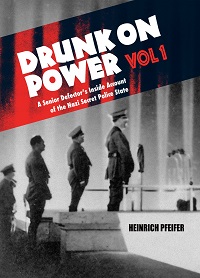Description
The Class Reunion is a novel set in the city of Prague. Until 1918, Prague was the capital of the Czechoslovak region of the Austro-Hungarian Empire and was ruled by an Emperor in Vienna. A large minority German-speaking population lived in Prague at that time and for many years afterwards. During the Empire they were the administrative class of the city. They consisted mostly of a mixture of Austrians and secular, non-practicing, Austrian Jews (such as Werfel himself). All of the characters in this story are from that dominant minority. The story commences in the year 1927, which is the twenty-fifth anniversary of the graduation of the Class of 1902 from the exclusive and elite boys’ secondary school, the Saint Nicholas Gymnasium. (“Gymnasium” in this context does not refer to sports, but is the official description of an upper school, the graduates from which then go on to the university or the professions.) Subsequent to the end of the First World War in 1918, the Austrian Empire was disbanded and broken up, due to having sided with Germany. Czechoslovakia then became an independent republic, though many of the German-speaking minority remained prominent there. Saint Nicholas Gymnasium is the fictional name of the school which Werfel really attended, the Stephansgymnasium. Much of the story takes place in the years 1901 and 1902, when the formative events of the tale happened. At that time, students were required to become expert at Latin, and Latin phrases and sentences were frequently hurled about by both students and teachers as punctuations to their conversation, as insults, or as ironic comments. Many of the characters in this story are thinly disguised portraits of real people. At the time of publication in 1928, the book caused a public furor not only because of its relentless analyses of personalities, of psychologies, and of motives, but because many of the people in the story were widely recognized as specific individuals. The others were equally recognizable types familiar to everyone who had ever attended a boys’ school. After publishing this devastating story, there was no way that anyone of the German language reading public could say they had not heard of the notorious Franz Werfel. One more thing needs to be explained: on the continent of Europe special officials called examining magistrates exist, who are judges who actively investigate the crimes they are also judging. Such officials do not exist in the English-speaking world.
About the Author
Franz Werfel was born in Prague in 1890 and died in August, 1945, at Los Angeles, where he had settled as a refugee from the Hitler regime. He was survived by his wife Alma (1879-1962).
Werfel was from a prosperous Jewish family who lived in the enclave of “German Czechs” in Prague, as this was the period of the Austro-Hungarian Empire, of which Czechoslovakia was a part. His Czech governess frequently took him to mass, so that he was very familiar with Roman Catholicism, which stood him in good stead when later he wrote his famous novel, The Song of Bernadette about Bernadette of Lourdes, one of the most beloved works of fiction of Catholics all over the world.





